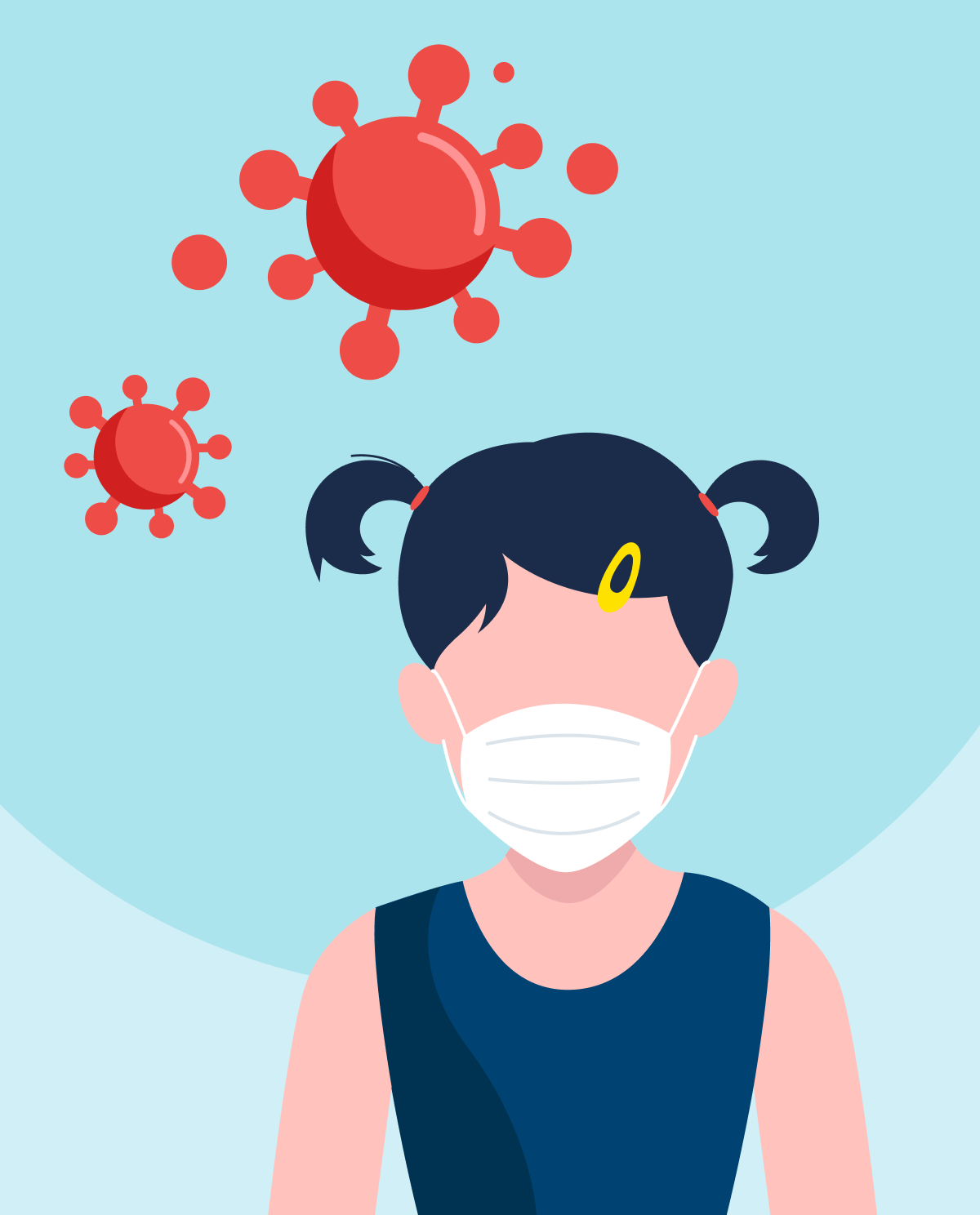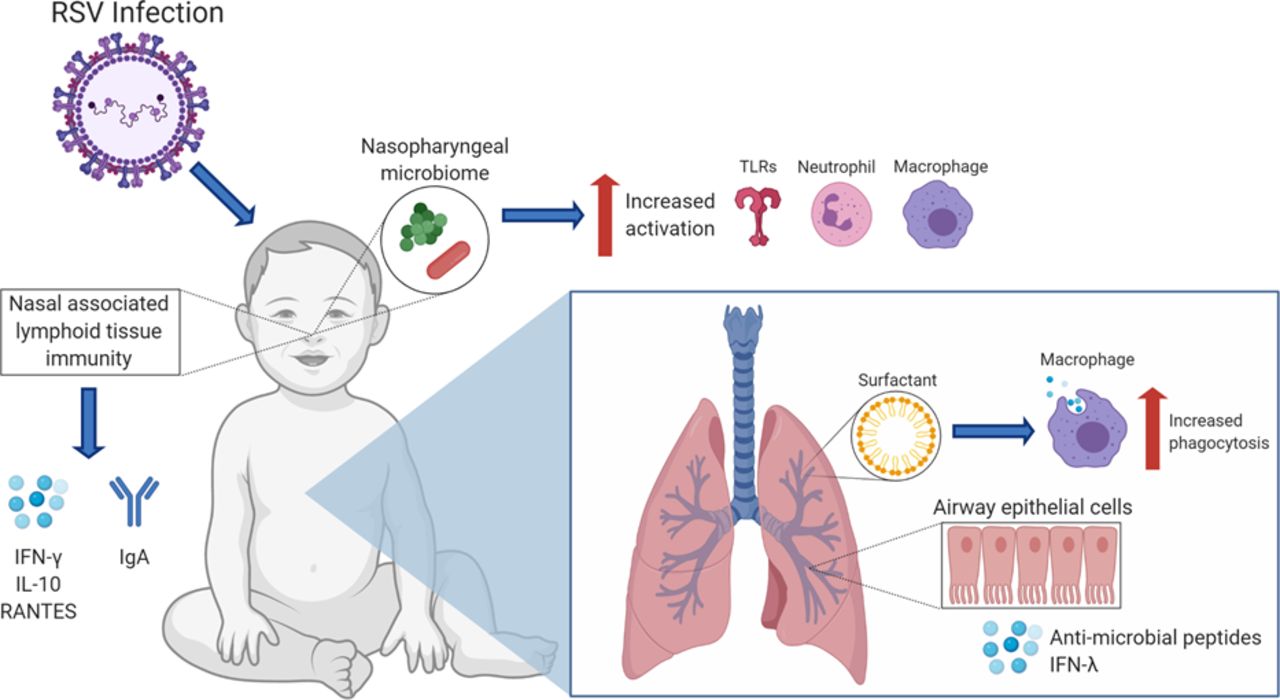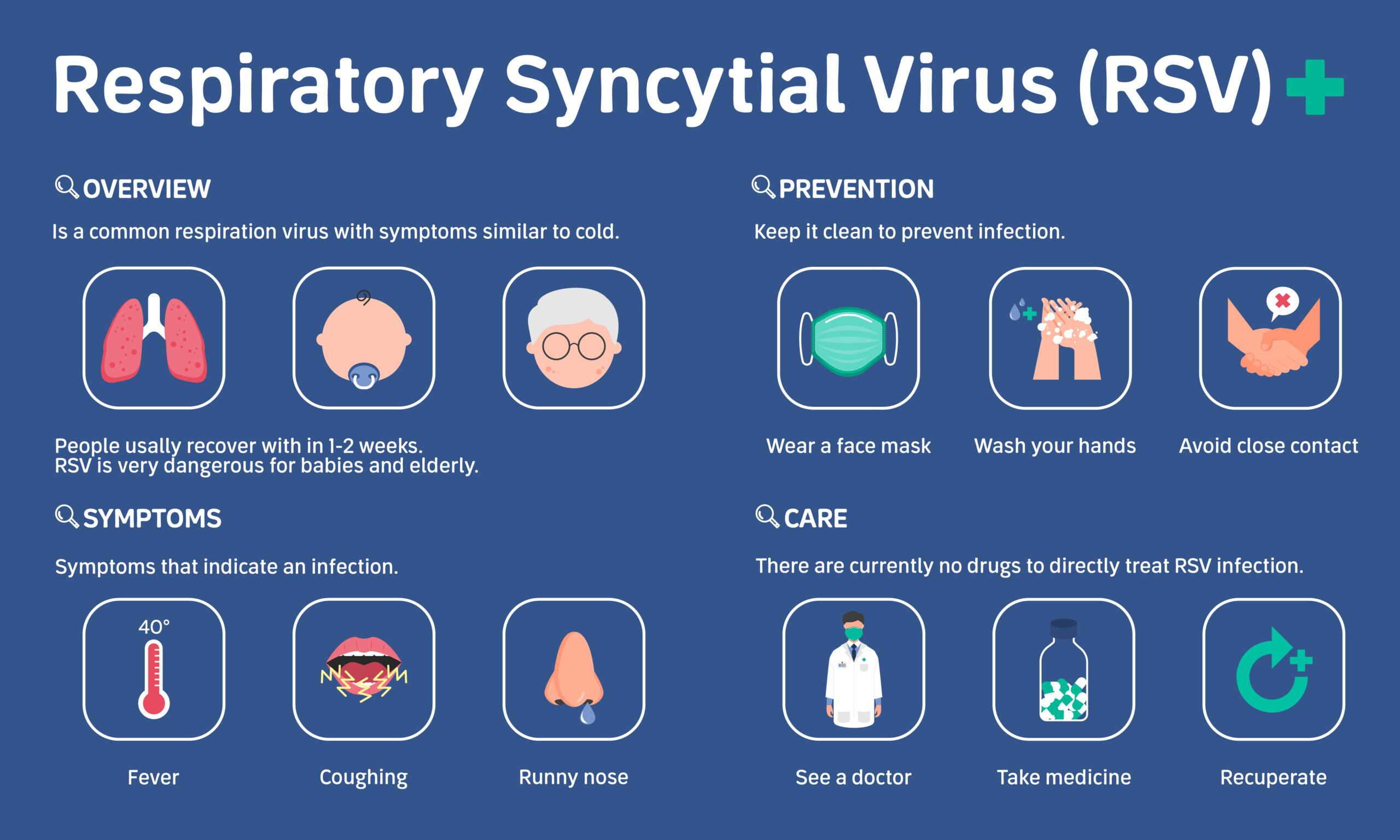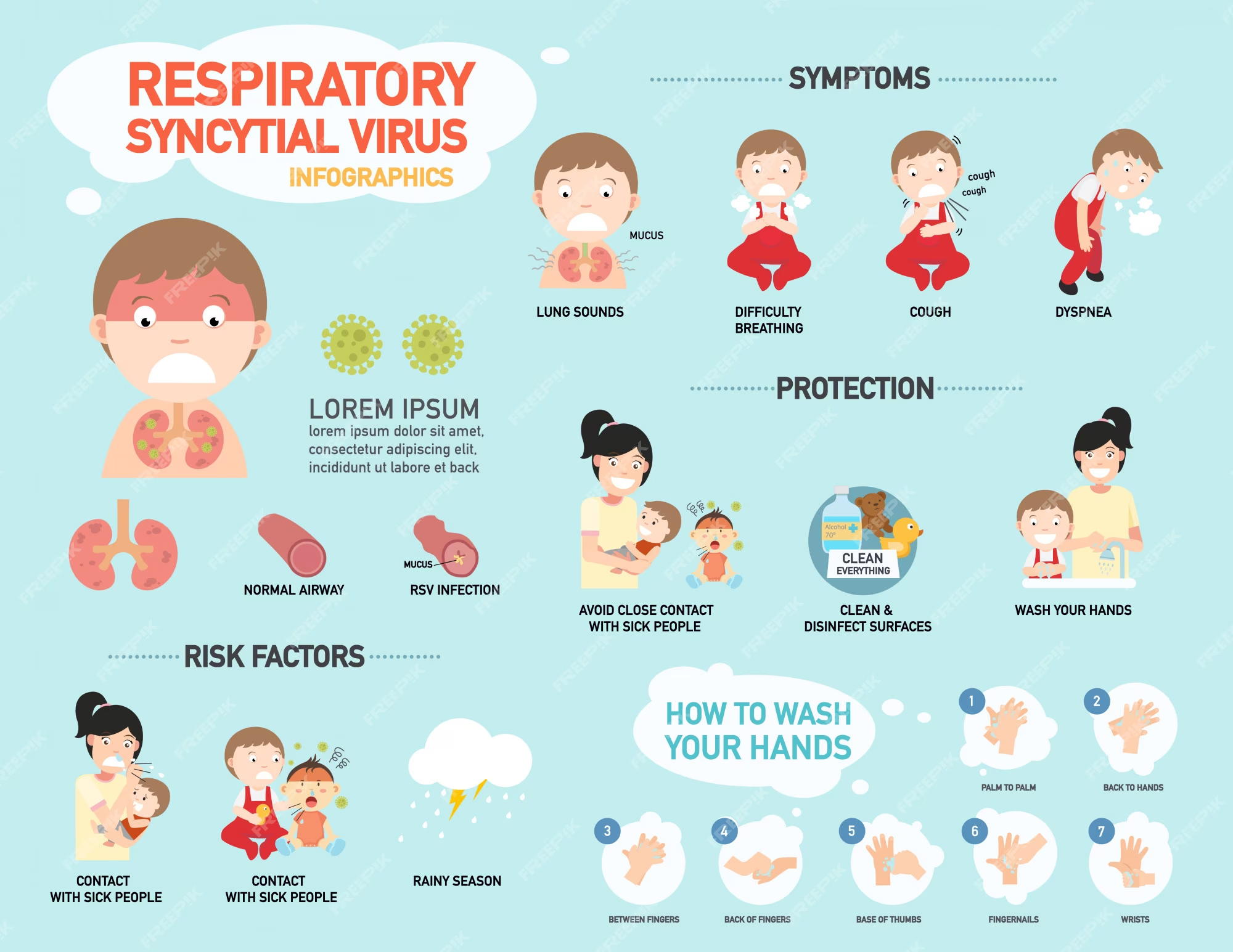
What is respiratory syncytial virus (RSV)?
Respiratory syncytial virus (RSV) is a common virus that can infect your airways and lungs. It is highly contagious and spreads easily.
RSV infections most often affect children under 2 years of age.

What are the symptoms of RSV?
Symptoms usually start 3 to 10 days after infection with RSV.
Most cases are mild, and symptoms include:
- a runny nose
- cough
- fever
Some people will also get an ear infection.
Almost all children will have been infected with RSV by the age of 3 years.
Children with asthma or breathing problems will find these get worse when they have RSV.

What causes RSV?
RSV is caused by a virus.
RSV spreads through small water droplets. These are spread by infected people when they:
- talk
- cough
- sneeze
These droplets can then be breathed in by other people.
RSV also spreads through direct contact with items that contain mucus from the nose or throat of an infected person (for example, tissues).
You can also pick up RSV from surfaces that have been touched by an infected person such as a door handle.
RSV survives for longer on hard surfaces than softer surfaces like tissues and hands.
When should I see my doctor?
Most cases of RSV are mild and can be treated at home.
If you are concerned about your child’s level of alertness, breathing, colour, or feeding, see your doctor or go to your nearest hospital emergency department.
Call triple zero (000) for an ambulance, if your child is:
- having severe difficulty breathing
- making a ‘grunting’ noise
- turning blue
How is RSV diagnosed?
RSV can be diagnosed by:
- a laboratory test on samples taken from your nose and throat
- a blood test to look for antibodies to the virus
Most doctors will be able to diagnose a child with severe RSV infection based on their signs and symptoms.
How is RSV treated?
There is no specific treatment for RSV.
Your child should get lots of rest and drink lots of fluids.
Babies with RSV need small amounts of water regularly.
If your child has a fever you can give them paracetamol or ibuprofen. Never give aspirin to children under 12 years of age.
Antibiotics don’t work against RSV, because it is a virus.
There is currently no vaccine for RSV.
Most people recover from RSV in about 10 days. Children take around 8 to 15 days to recover from RSV.
Can RSV be prevented?
Regular handwashing and good personal hygiene can stop RSV from spreading. Soap and water kills RSV.
Other ways you can prevent RSV from spreading include the following.
- Keep infected people away from others, especially babies and older people.
- Cover your nose and mouth when you sneeze or cough.
- Throw out tissues as soon as you’ve used them.
- Don’t share cups, glasses or cutlery with people.
You are usually infectious with RSV for up to 10 days after your symptoms start.
What are the complications of RSV?
RSV can cause breathing problems and lung infections in children. These include bronchiolitis and pneumonia.
Some children will need to go to hospital, especially if they are babies younger than 6 months.
Older people and people who have problems with their heart, lungs or immune system are also at risk from RSV infections.


